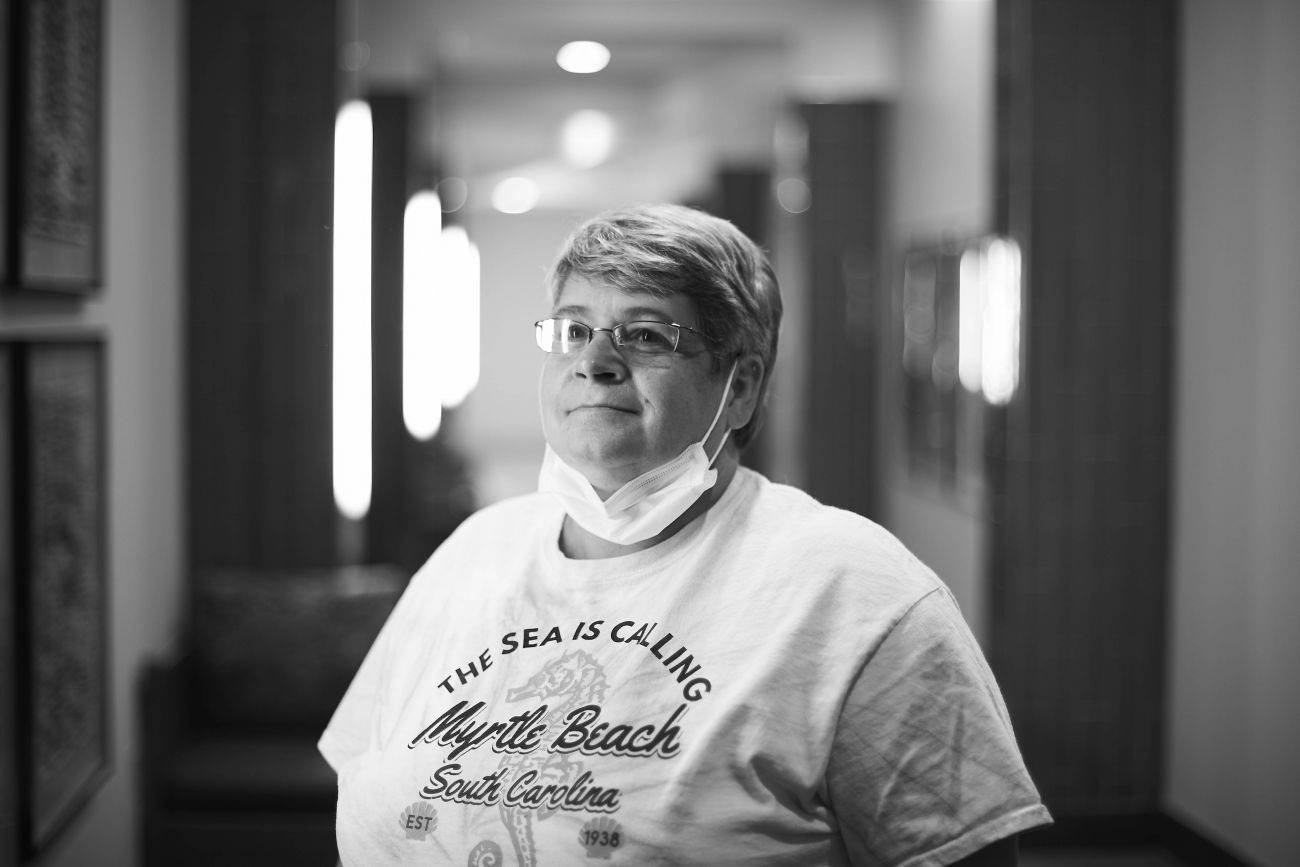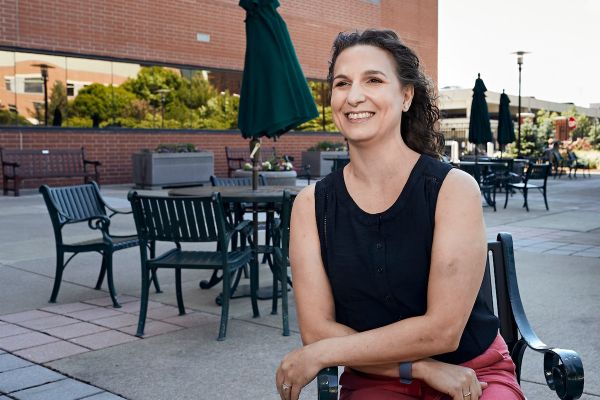In 2017, when Judi Hale felt a lump in her neck, she immediately suspected cancer.
“I knew. My sister and dad both died from cancer, and now I figured it was my turn,” she recalls. Fortunately, she was only partially right.
Judi was diagnosed with stage 4 lung cancer at a hospital near her home and told that her cancer was so widespread, surgically removing all of the tumors would be impossible. “I was given three options: live for maybe six months without treatment, have chemotherapy and live for maybe a year and half, or have chemotherapy and try a new drug in a clinical trial to see if it could extend my life,” Judi recalls. “For me, the choice was pretty clear. I was only 52, I have five sons and 13 grandkids, and I wanted to be with them for a long time.”
Unfortunately, despite grueling chemotherapy and a study drug, Judi’s cancer did not respond to the treatment plan. “At the end of six months, none of my tumors had shrunk and the trial was ended.” But Judi wasn’t giving up on her long-term plans. And that’s when her doctor said, “Go to Roswell Park.”
Immunotherapy Offers New Tactic
The timing was perfect. Roswell Park had just opened a new clinical trial of CIMAvax, a promising lung cancer treatment that was developed in Cuba. Thanks to a historic partnership with Cuba’s Centro de Inmunología Molecular (CIM), Roswell Park was — and still is — the only center in the nation offering a clinical trial of CIMAvax. The vaccine is a type of immunotherapy, an anti-cancer approach that uses the immune system to fight the cancer.
“Cancer cells have adapted in order to hide from the immune system or neutralize its effect,” explains Roswell Park’s Grace Dy, MD, Chief of Thoracic Oncology and lead researcher of the CIMAVax trial. Cancer immunotherapy aims to use treatments, either directly or indirectly, to make immune cells able to recognize and kill cancer cells more effectively.”
Roswell Park’s trial of CIMAvax is for people with stage 3B or 4 non-small cell lung cancer who are candidates for treatment using standard immunotherapy drugs. In Phase 1 of this trial, the CIMAVax vaccine was combined with another type of immunotherapy drug, nivolumab (Opdivo®). Nivolumab “neutralizes” the substance called PD-L1 produced by cancer cells that inactivate the immune cells. Therefore, nivolumab can reactivate immune cells to kill cancer cells. However, PD-L1 represents one of the many strategies cancer cells have developed to escape from being attacked by immune cells, so not all cancer cells benefit from treatment with drugs such as nivolumab.
CIMAVax works differently. The vaccine stimulates your own body to produce an antibody which then blocks a protein called epidermal growth factor that cancer cells need to grow and essentially ‘starves’ the cancer cells so they can no longer multiply.
Judi met the criteria for the trial, and in 2018, began the immunotherapy treatment. For two years now, she and one of her sons have made the four-hour round trip twice a month to receive a CIMAVax injection (once a month) and infusions of nivolumab (twice a month) at Roswell Park.
Roswell Park Center for Immunotherapy
What is immunotherapy and how does it work? Our experts explain more.
Learn More“I’m not going to lie. The CIMAVax injections hurt when you first get the shot and I’ve never dared to look at the size of the needle,” she laughs. “But it’s worth it because all of the tumors in my neck, arm and lymph nodes have significantly shrunk, and the tumors on my lungs have remained stable.”
In the next phase of the trial, CIMAVax will be tested as a possible first line of treatment for certain lung cancer patients.
“Other than a shot once a month, I’m in no pain,“ Judi says. “Instead, I’ve already lived three years longer than I thought I would at the beginning of this diagnosis. I’m happy to be alive and feeling well, and one day, I hope to ring that Victory Bell at Roswell Park.”
Editor’s Note: Cancer patient outcomes and experiences may vary, even for those with the same type of cancer. An individual patient’s story should not be used as a prediction of how another patient will respond to treatment. Roswell Park is transparent about the survival rates of our patients as compared to national standards, and provides this information, when available, within the cancer type sections of this website.


